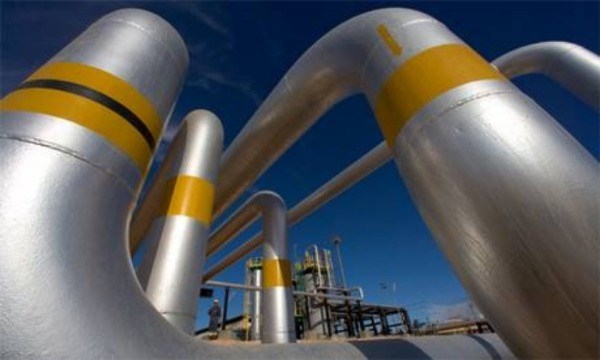Turkey losing interest in Russian gas
While Gazprom was completing the $7 billion Turkish Stream gas pipeline, Turkey was cutting back on its purchases of Russian gas.
By the end of 2019, 14.4-14.8 billion cubic meters (bcm) of Russian gas had been transported to the Turkish market, Interfax calculates, based on statistics from the Turkish Energy Market Regulatory Authority (EPDK).
In comparison with 2018, this equates to a decline of approximately 40%. As a result, for the first time in 13 years Turkey is no longer one of the top three buyers of Russian gas. Since 2007, the Turkish market has been the second largest in terms of Gazprom’s export quantities, with only Germany being bigger. But last year, Turkey was surpassed not only by Italy, but even by Austria, whose economy is only half the size of Turkey’s
The Blue Stream pipeline which has pumped gas to Turkey since 2003 operated at less than two thirds of its full capacity – despite a capacity of 16 bcm per year, it transported only 10.3-10.6 bcm. Gazprom supplied another 4.35 bcm through the Trans-Balkan Corridor.
The statistics indicate that Turkish buyers have replaced the Russian gas with gas from Azerbaijan or with liquefied natural gas (LNG).
Following the launch of the Trans Adriatic Pipeline (TAP), which pumps gas to Europe from the Shah Deniz field in the Caspian Sea, Turkey has increased its gas imports from Azerbaijan by 29%, importing 8.66 bcm over 11 months.
The amount of LNG purchased by the country over 11 months reached 10.9 bcm, and may have crossed the 12 bcm threshold by the end of the year, Interfax estimates. This is 7% more than in 2018.
The largest supplier, with a market share of nearly 50%, was Algeria (5.07 bcm). In second place was Nigeria (2.13 bcm), and Qatar third (1.93 bcm). American shale gas, despite the record production and the launch of four new terminals on the East Coast, has been unable to win over the Turkish market, supplying only 0.98 bcm in the year.
Episodic deliveries of LNG have also arrived from Equatorial Guinea, Egypt, Trinidad and Tobago, Norway and even France. Imports from Iran have not changed – 6.88 bcm.
Price disagreements are apparently what has forced Turkey to selectively cut back on Russian gas.
In February last year it was learned that Gazprom Export had succeeded in having a 10.25% discount revoked in court. Since 2015, the private Turkish gas importers Akfel Gaz Sanayi ve Ticaret A.S. and Enerco Enerji A.S. had enjoyed the discount.
The traders had traditionally bought gas at lower prices than the national supplier Botas, which can supply gas on Turkey’s subsidized internal market while operating with zero profit or even at a loss. In 2015, the companies obtained the 10.25% discount, which was supposed to remain in effect until 2016. In 2016, Gazprom tried to raise prices during a legal dispute with Botas regarding the contract terms, but the independent gas companies did not agree, since they considered the discount permanent.
Since they did not pay the higher bill for 2016, Gazprom responded by reducing the supply volume by 10% compared to their bids. In April 2016, the parties settled out of court, although Gazprom disputed the price in court in 2017.
Russian and Turkish presidents Vladimir Putin and Recep Erdogan were unable to resolve the price dispute in April. “There are questions, there are problems. Our Turkish friends insist on certain formulas, according to commercial considerations, Gazprom proposes other solutions,” Putin said after the meeting.
He added that Moscow will look for a solution to the problem, since it values the Turkish market and its relations with its “Turkish partners and friends”.
